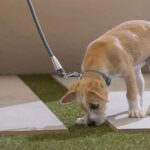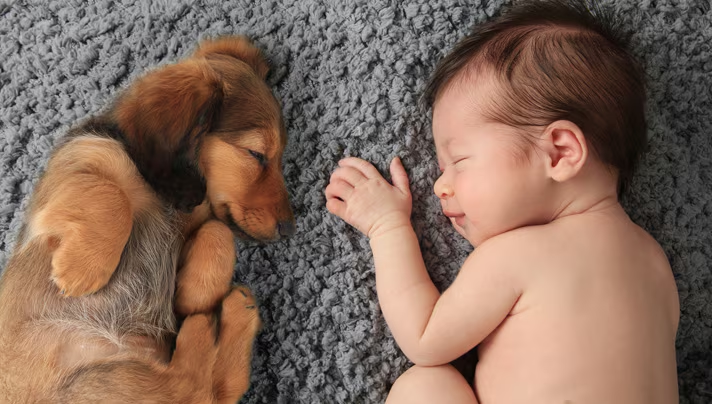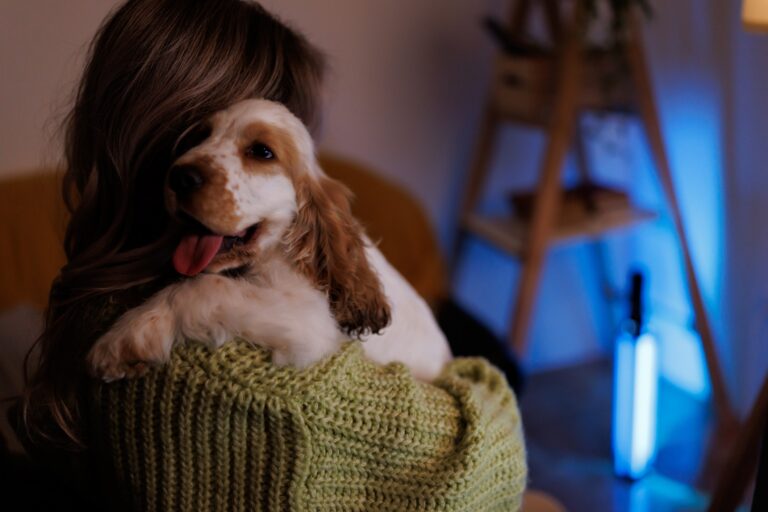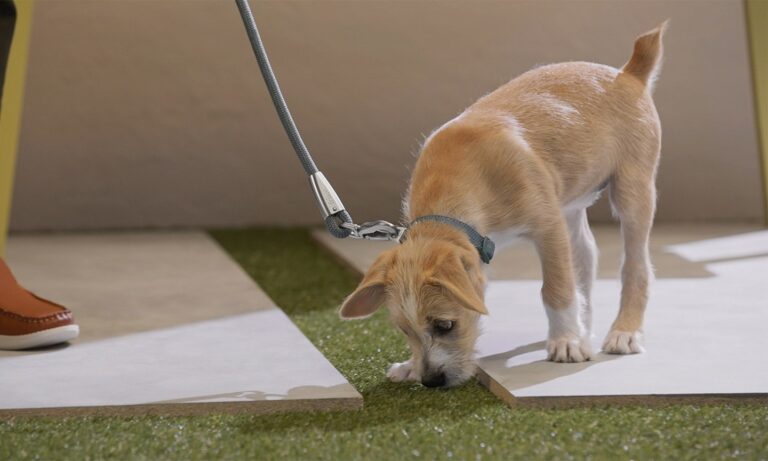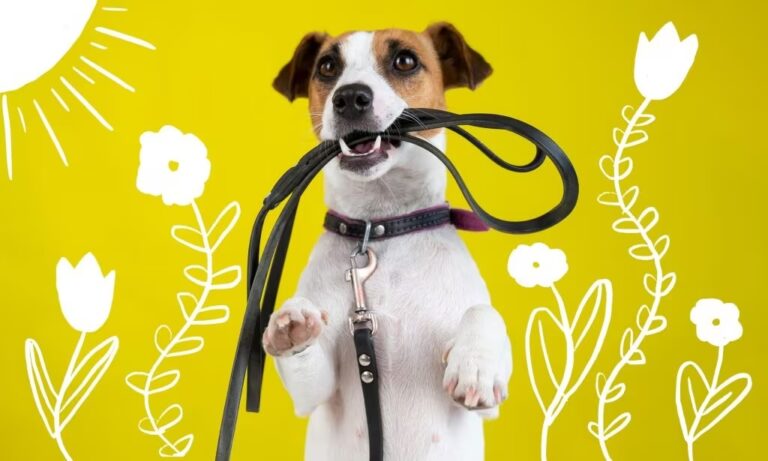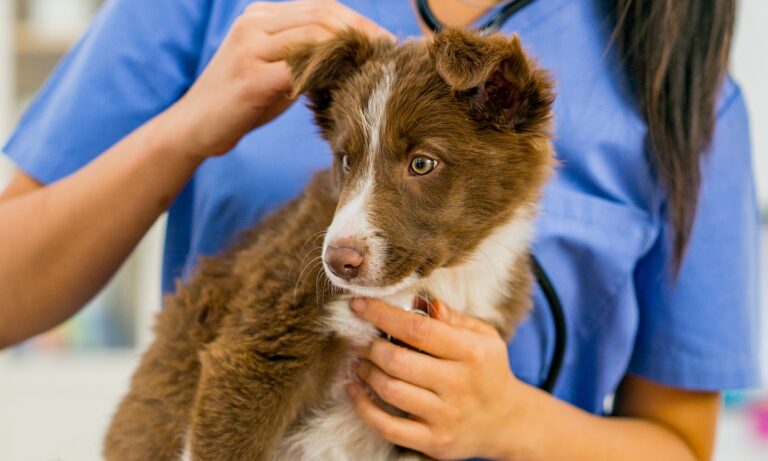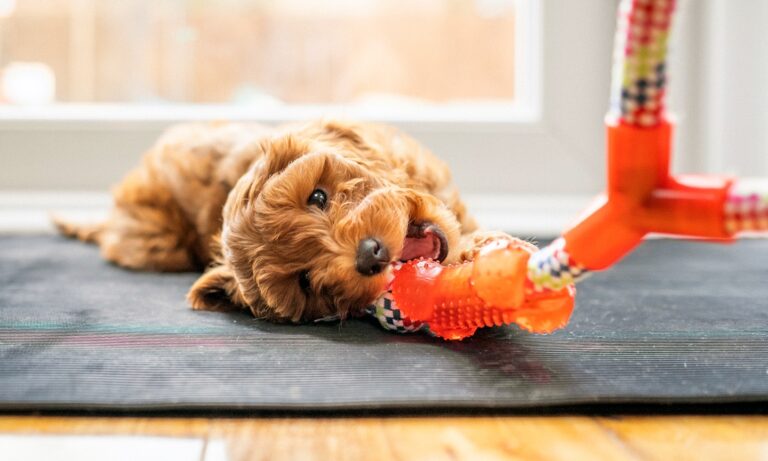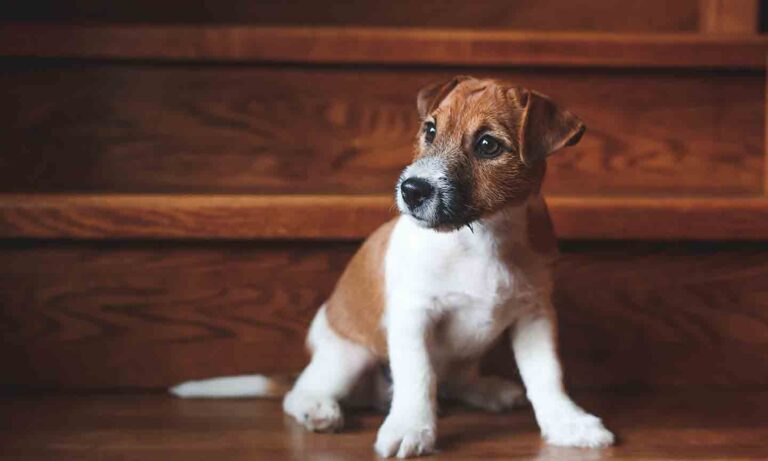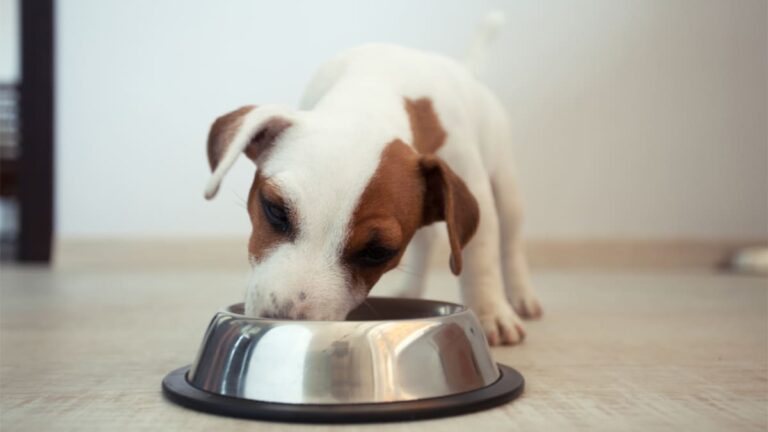How to Stop Your Puppy From Biting (Because Those Nips Won’t Stay Cute Forever)
Sure, your puppy’s biting tendencies might seem cute for now. But as your puppy grows up, those playful nips can grow, too—into more forceful and even painful bites. It’s important for pet parents to learn how to stop puppy biting from the get-go, to help curb nipping and nibbling on you and other people in your circle, as well as chewing on objects around the house.
We talked to Dr. Carley Faughn, Ph.D., CAAB, an animal behaviorist at Best Friends Animal Society in Knaub, Utah; and Bradley Phifer, CBCC-KA, owner of Bradley Phifer Dog Training in Indianapolis, Indiana, and executive director for the Certification Council for Professional Dog Trainers, for advice on how to stop a puppy from biting.
How to Stop Puppy Biting: Step-by-Step Instructions
It’s important to curb your puppy’s biting before it escalates or becomes an ingrained behavior. Even puppy mouthing, aka your pup’s practice of licking your hand, nibbling at your fingers or lightly chewing, can evolve into painful biting if not addressed.
“A puppy or dog that does not have good bite inhibition could bite a person too hard, even when playing,” warns Dr. Faughn.
Bite Inhibition: the ability to control the forcefulness of a bite, or to cease the biting behavior altogether.
Teaching bite inhibition requires patience, consistency and a gentle approach. With that in mind, follow these steps:
1. Gather Your Supplies
To teach your puppy to stop biting, you’ll need:
- Chew toys
- Dog treats
- Bitter spray (optional)
- A playpen or dog gate (optional)
2. Pick a Training Word or Sound
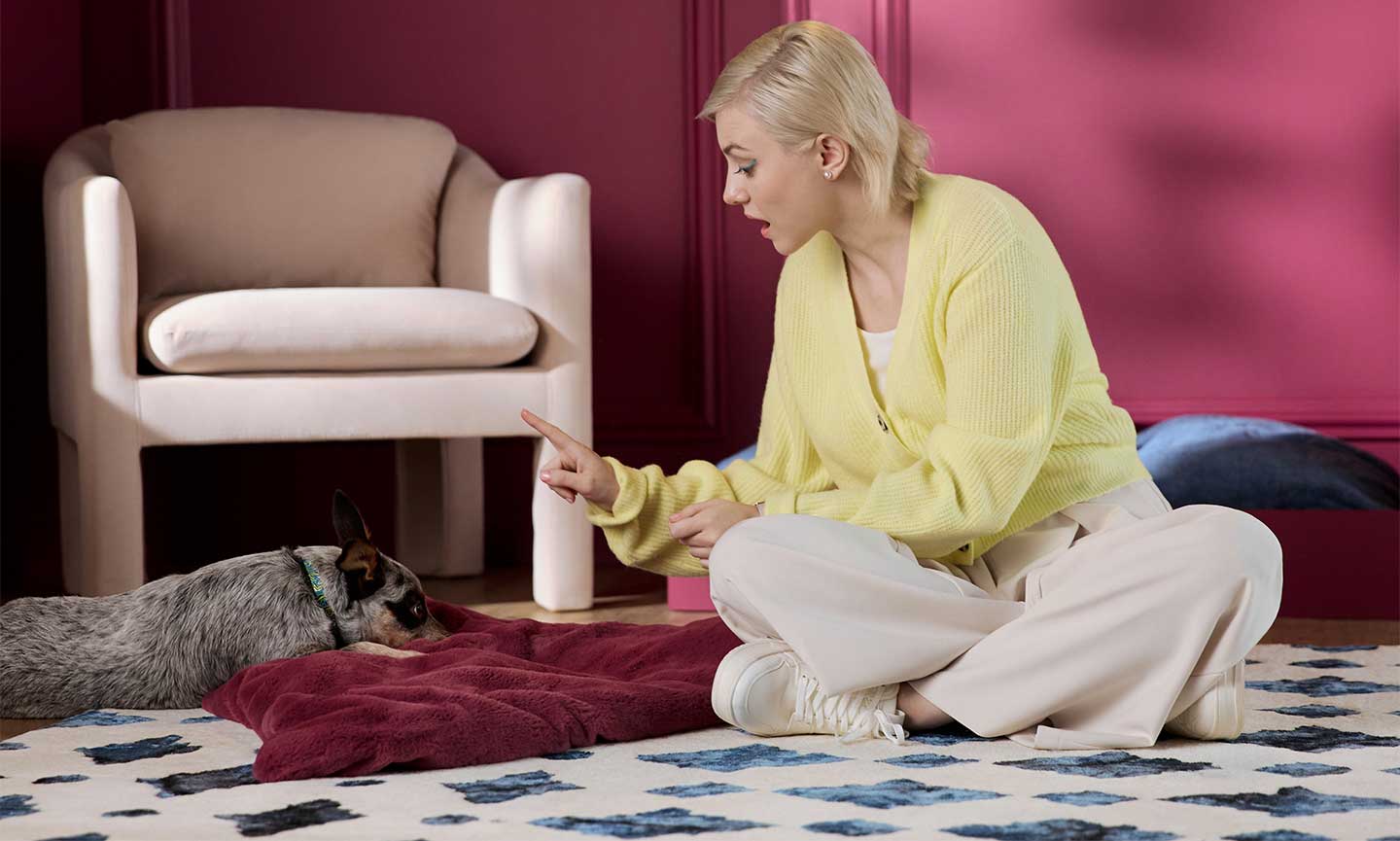
Find a singular word or quick sound to interrupt the biting. This might be as simple as “no,” “ow” or “stop.” For sounds, you could try a hand clap.
When your puppy bites, say your training word firmly, or use your sound. The noise should distract your puppy from biting for at least a moment—and that’s your opportunity to redirect their behavior. (More on that in the next step.)
3. Redirect Their Attention

Redirect your puppy’s attention to a chew toy that they can sink their sharp puppy teeth into. Place it in front of their mouth so they’ll bite the appropriate chew toy instead of your hands, arm or clothes.
Pro Tip: Some puppies bite because they’re teething. Teething toys for puppies can help them find some relief while their adult teeth come in—and they can help with mental stimulation, too.
If your puppy insists on biting even after redirecting, try a timeout. Sometimes, stepping away is the best option. You may need to place your puppy in a playpen or simply leave the room for a minute or two. This signals to your puppy that the behavior isn’t welcomed, and also allows them to focus more on their chew toys versus your tender skin.
Safety note: Never leave your puppy alone in a place that’s not puppy-proofed. Always ensure items like electrical wires, blind cords and other hazards are out of their reach.
4. Reward Good Behavior
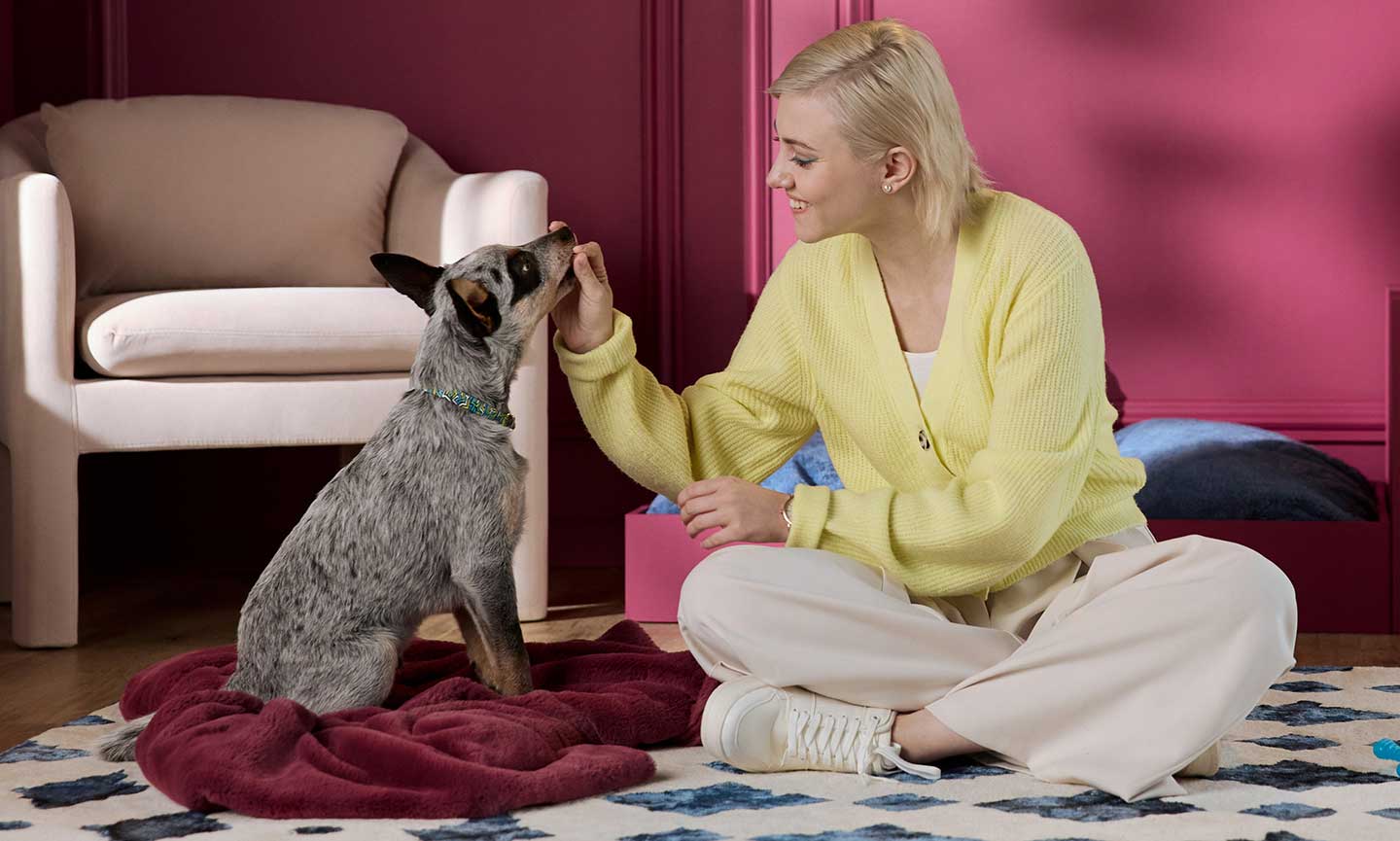
6. Try Using a Bitter Spray on Objects
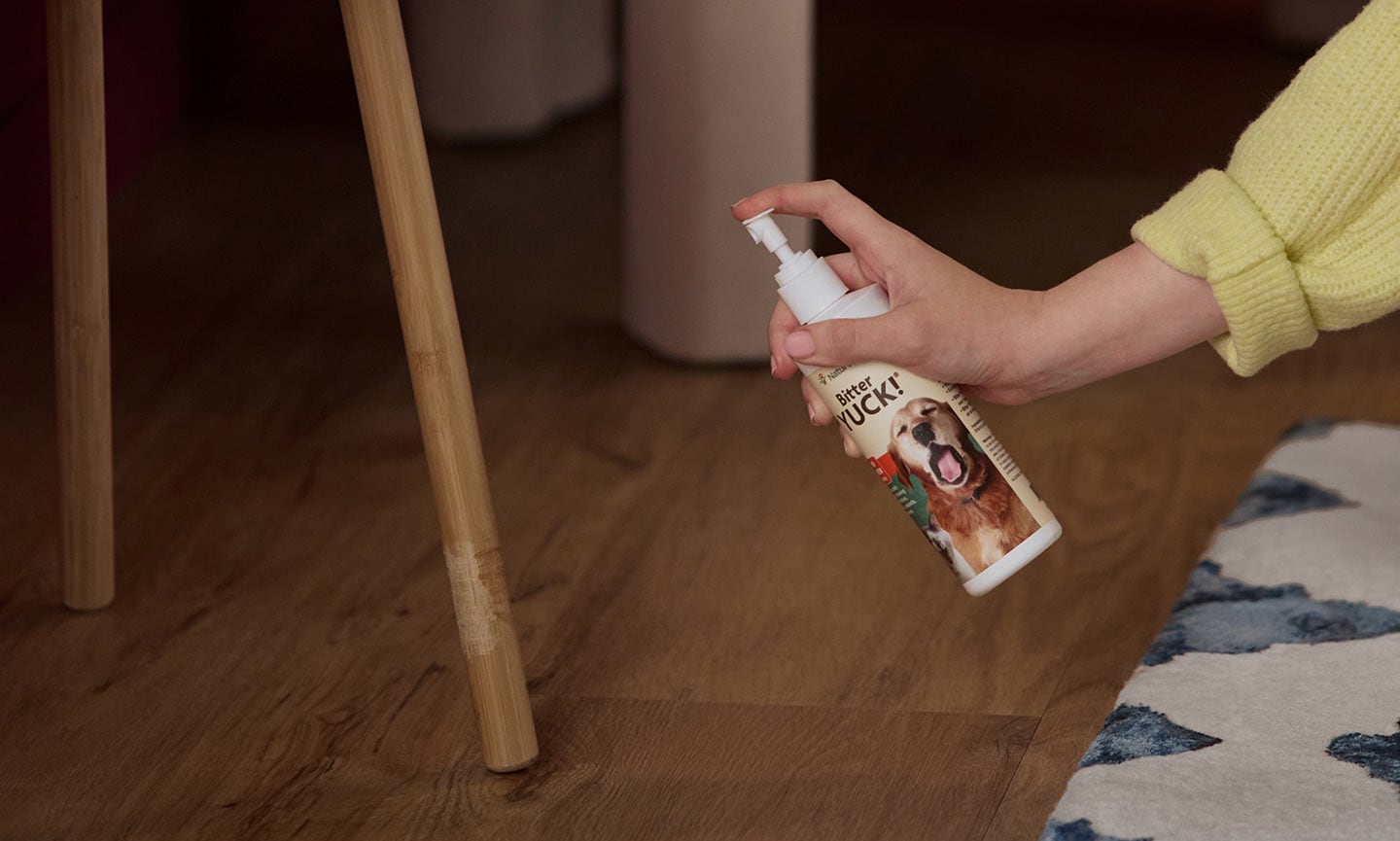
If your puppy’s biting has extended to objects around the house, bitter spay like NaturVet Bitter YUCK! No Chew Spray can help. These sprays have a flavor some puppies find unpleasant, and they can be applied to clothing, shoes, furniture and more, deterring puppy biting and mouthing of these items.
Just remember that bitter sprays are deterrents, not punishments. You should never spray your puppy with a bitter spray or squirt it in their mouth. It will not stop them from biting, and could cause them to become fearful of you.
Need more tips on stopping your dog from chewing objects? We’ve got you covered.
Why Does My Puppy Bite Me?
All living things have different ways of exploring the world. Humans observe with our eyes, feel with our hands and, yes, even explore with our tastebuds. (Have you ever seen a baby who can’t resist putting things in their mouth?) Puppies do the same, checking out the environment around them by mouthing, chewing and biting.
So how do they learn when a bite is too hard? Often, it’s through interacting with their mother and littermates. For example, if a puppy is bitten too hard by their playmate, the “victim” will whimper or yelp, push them away or run away. Mama dogs are key in teaching bite inhibition, too—growling or snapping when play bites get too hard.
When we bring puppies home to live with us, it’s our responsibility to continue curbing this form of rough play.
Do Puppies Bite When They’re Angry or Scared?
Usually when puppies bite, it’s done during a play session. However, in less common scenarios, they bite to communicate that they’re uncomfortable or feeling stress. Since puppies are still developing and learning how to live in a human world, some scenarios may be very overwhelming for them. In these cases, the bite is often paired with a growl or baring the teeth. The bite may also be more forceful than a typical play bite.
In these scenarios, it’s important to take a time out and give your puppy some space. That may also mean removing other animals or young children from the room or making their favorite blanket or toy available.
Pro Tip: Do not scold your puppy if they growl. This is an important way for dogs to let us know they are uncomfortable.
Other Reasons Puppies May Bite:
- Accidentally nipping your hand when taking a treat. To prevent this, hold your hand flat when offering treats, or place the treat in a dish or on the ground
- Feeling frustrated with a situation
- Experiencing boredom and wanting your attention or more mental stimulation
- Wanting to taste your salty skin (usually they’ll just lick you, but it may develop into puppy nibbling)
- They’re teething and don’t have access to appropriate chew toys
What If My Puppy Doesn’t Stop Biting?
Puppy mouthing and biting usually begins to naturally subside when they’re around eight to 10 months old. However, factors like socialization, training and personality can affect your puppy’s propensity to bite. If biting continues despite ongoing puppy training, reach out to a licensed behaviorist. Organizations like the American College of Veterinary Behaviorists and the International Association of Animal Behavior Consultants host listings that allow pet parents to search for reputable behaviorists in their area.
Puppy classes led by certified dog trainers typically teach a handful of basic training tips and commands, including bite inhibition. You may also want to consider online training options. Follow our tips on finding the perfect dog trainer for your pup.


